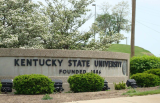New research from the University of Otago suggests that children who suffer from sleep apnea may be more likely to struggle in school.
"Sleep apnea is probably not immediately inflicting educational issues," Barbara Galland, lead writer of the study, told The Suffield Times. "As an alternative, sleep apnea might intrude with, which can, in flip, contribute to youngsters having a tough time paying consideration and being much less able to study and carry out academically in the course of the day.
Sleep apnea is a sleep disorder in which breathing repeatedly stops and starts.
For the study, researchers reviewed 16 studies done in 12 countries dealing with sleep apnea or related disorders in children and academic development. Each study included an average of about 500 children between the ages of 5 and 17 years old, Reuters reported.
They found that students who have sleep troubles due to breathing problems had roughly 12 percent lower grades than scores of students without the sleep disorder.
According to researchers, when sleep-disordered breathing is caused by or related to children's tonsils and adenoids, it might be helpful to remove them.
"For other children, jaw alignment may contribute and dental treatment is being developed to address this," Galland said. "Other health factors such as obesity can also contribute to sleep-disordered breathing, another reason for developing effective approaches to address this complex health issue."
The findings are detailed in the journal Pediatrics.
© 2025 University Herald, All rights reserved. Do not reproduce without permission.








